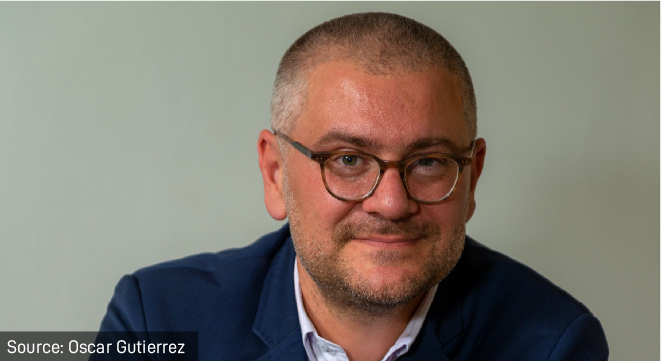“We need to have a serious debate about raising taxes, because taxes are going to have to go up. There is no doubt about it in my mind,” Michael Sachs, the deputy chairman of the Finance and Fiscal Commission (FFC), told Parliament last week.
The FFC and the Parliamentary Budget Office made presentations to four of Parliament’s finance and appropriations committees on the Budget tabled by Finance Minister Enoch Godongwana.
Sachs said personal income tax, corporate income tax and VAT will have to increase, and “it will only depend on what is the balance between those three”.
“We really need to have a debate about where that balance needs to be struck, and by how much we need to raise taxes to stabilise our fiscal position and pay for the huge structural increases in expenditure that have been announced in this Budget.”
He said the largest expenditure item over the next three years is debt service costs, averaging R333 billion a year.
Sachs said debt service costs will increase by about 14% in nominal terms every year over the next three years, whereas the health budget will increase by 2.3% in nominal terms, far below the inflation rate. Unless this situation was addressed, it would get “significantly worse”.
The issue was not the level of the debt, “but the amount that was taken out of national income and tax revenue and handed over to foreigners and the wealthiest households in the country”, said Sachs, who is also adjunct professor of the Southern Centre for Inequality Studies at the University of Witwatersrand.
National Treasury estimates debt service costs at R302bn in 2022/23, R335bn in 2023/24 and R364bn in 2024/25.
Sachs said there were only three ways to resolve the issue:
- Reduce spending. “I think the programme on the table goes as far as we could conceivably imagine.”
- Raise taxes, “and we’ve not even begun to have the discussion about that”.
- Accelerate economic growth. “We would all like that to happen but don’t seem to agree on how to make it happen.”
Budget’s ‘contradictory’ signals
Sachs said there was a contradiction between what the Budget proposed for the present and the future.
He said R100bn was added to expenditure in this year’s Budget, while R95bn was added to expenditure last year, “but the future, we are told, involves significant cuts to expenditure”.
“There is a parallel issue on the tax side, where Treasury is signalling very strongly that … these structural increases in expenditure be funded by structural increases in taxation, which I think is absolutely correct. But for the present, we want to cut taxes. We don’t want to raise taxes on anybody. We want to give people relief for fiscal drag on personal income tax. We don’t want to raise fuel levies, and we want to lower corporate income tax.
“To me, it’s rather odd that you would signal so strongly the need to reduce expenditure tomorrow, but today you are raising expenditure significantly. And you want to signal also the need to raise taxes tomorrow, but today your main preoccupation is lowering taxes,” said Sachs, who resigned as the head of Treasury’s budget office in November 2017.



